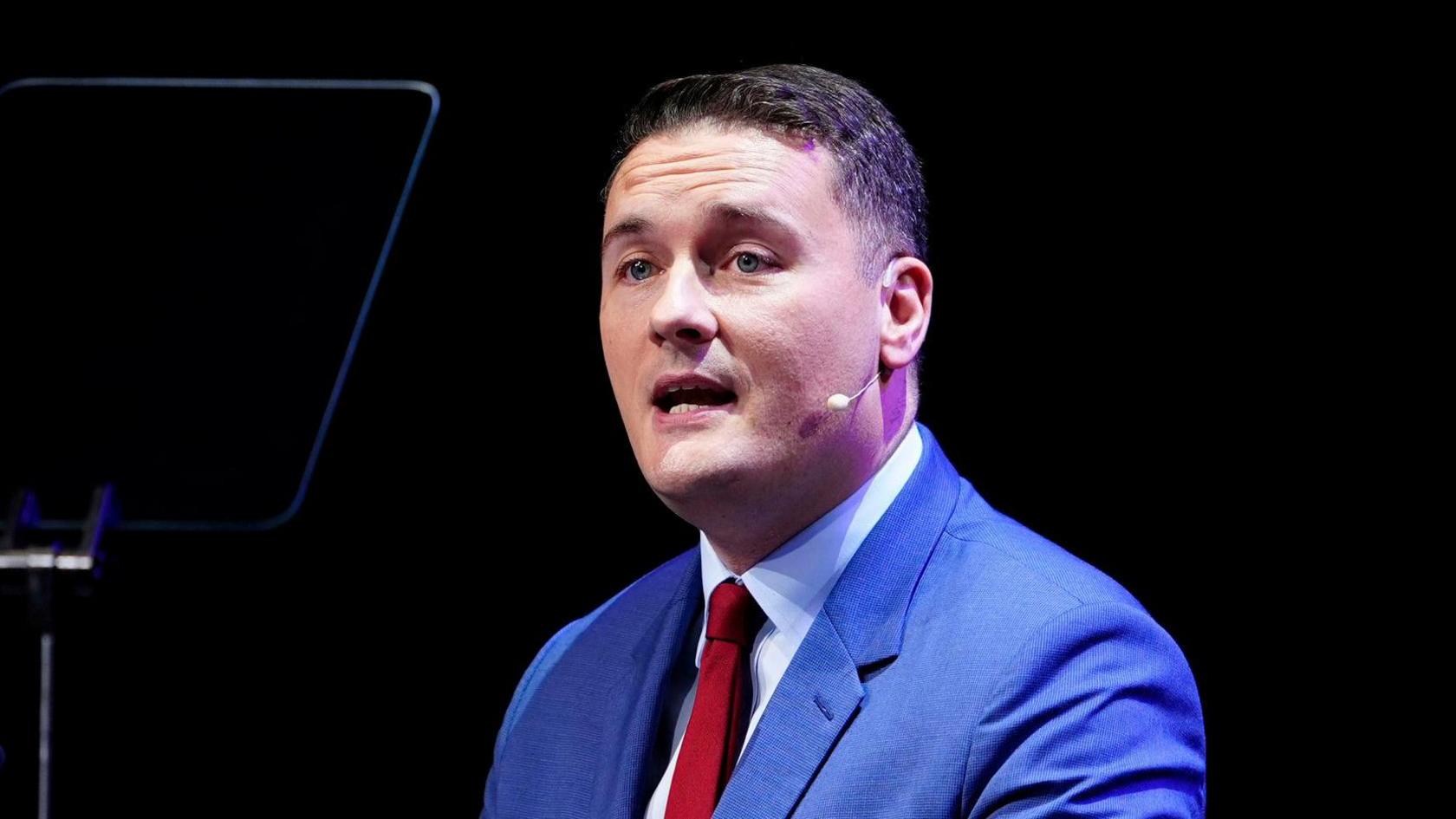Streeting faces pushback over assisted dying stance

- Published
Health Secretary Wes Streeting is facing pushback from senior Labour figures over his repeated strident interventions against a move to legalise assisted dying in England and Wales.
MPs will have their say on the issue later this month – in what is known as a free vote, where they are not instructed how to vote by their parties.
The government is attempting to maintain a neutral stance.
Cabinet Secretary Simon Case, the UK's most senior civil servant, told ministers last month, external they should "exercise discretion and should not take part in the public debate".
But Streeting’s view became public after he told a large, notionally private, meeting of Labour MPs what he thought.
Streeting will vote against assisted dying law
- Published24 October 2024
Since then, in interviews, he has repeatedly set out his objections.
This week, he suggested a change in the law would mean the NHS would have less money for other things.
Some of those hoping for a change in the law fear the health secretary’s interventions risk putting plenty of Labour MPs off backing it.
Others, some publicly, some privately, are irritated with Streeting and think he ought to wind his neck in a bit.
The bill, which was published this week, would allow terminally ill adults expected to die within six months to seek help to end their life.
Two doctors and a High Court judge would have to verify that they were eligible, and had made their decision voluntarily.
Kim Leadbeater, the Labour MP behind the bill, said she found some of Streeting's remarks “quite disappointing and quite upsetting”.
And Labour peer Baroness Hodge, a former minister, told the BBC's Politics Live programme that Streeting should take account of what the cabinet secretary had asked of ministers and "hold fire a little bit".
She added: “His argument about costs? We spend most of the NHS money on the last months of life.”
'Different views'
And now, Streeting’s cabinet colleague Liz Kendall, the work and pensions secretary, has spoken out in support of the bill, telling me: “I have always believed in giving people as much choice and control as possible."
She added: “With all the right safeguards that this bill has, I believe it is an important step forward on such a difficult issue.
"Fewer and fewer of us have the sudden deaths that used to happen in the past. People often have a long and slower death. And we do need to talk about what makes for a good death.”
Kendall insisted she was “a great champion of Wes Streeting”, but pointedly added “this is something people have different views about".
One of Streeting’s team told me: “Wes has approached this issue in a genuine, thoughtful and considerate way, setting out his own view while respecting others’ views.”
They said he had initially been asked his views in a private meeting of Labour MPs, but once that leaked, he felt it necessary to explain publicly why he had come to his opinion.
The debate highlights the peril for the government, even when it grants all its MPs, including ministers, a free vote on an issue.
Were the bill to pass, would that leave the health secretary unable to carry on in his role?
His team insist he would carry on, and point out other ministers in the health department disagree with him, so it is certain some health ministers will find themselves on the losing side of the argument.
And what about the prime minister? He has previously set out his support for a change in the law, but will he make that view explicit again this time?
And how awkward could it be if he found himself on the losing side of the argument, were hundreds of his own MPs to oppose a change?
The first vote on the issue will take place in the Commons at the end of the month.